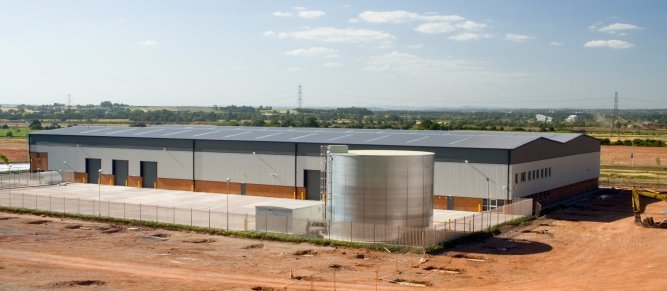It’s understandable to be concerned about the condition of your commercial or industrial facility’s roof when a heavy storm is raging against it. After all, you’ve got a lot going on under it, including productive employees and product stock that require protection on a daily basis. The last thing you want is a leak that could slow productivity or ruin your inventory.
If you think there’s nothing to worry about when the weather is dry, however, you could be in for a rude awakening. Precipitation and high winds might get much of the blame for damage, but your facility’s roof could still be headed toward a corrosive future even when there isn’t a cloud in the sky.

The stress of sunshine
It’s not easy for your roof to keep you and your business safe from the elements. There’s a lot to contend with, not the least of which is daily exposure to the heat of the sun.
Every day, your roof deflects and protects your facility from the sun’s rays, it’s also absorbing all of the heat that comes with those rays, causing the metal and other materials it’s made of to expand. When the sun goes down and the temperature lowers, your roof cools and those same materials contract. Over time, this repetitive process of expanding and contracting can cause the metal to weaken and fasteners to loosen.
In many cases, this is all simply the normal wear and tear that happens to a roof over the course of its life. It’s when temperatures get extreme that you really need to take an interest in what’s going on up there.
Thermal shock takes its toll
Summer can be a harsh, unforgiving season on an industrial or commercial roof. As high as outdoor temperatures can be, the temperature of the surface of the roof under so much direct sunlight can climb significantly higher. But as nice as a rain shower might be for you and me, it could be anything but refreshing to the health that rooftop.
When a material experiences incredible stress and/or damage due to rapid temperature change, the phenomenon is known as thermal shock, and it could cause major problems that could significantly lower the lifespan of your roof. The moment those cooling raindrops hit, those roofing materials, which have spent a long time expanding in the heat, will suddenly contract. That quick contraction could cause the metal or the coating meant to protect it to crack or fracture in places, which could then allow moisture to find a nice place to start doing its own corrosive damage.
This may come as a shock to you
It’s easy to overlook the needs of your roof when Mother Nature isn’t beating against it with rain and wind. Just because there’s no rain to call attention to the damage, though, doesn’t mean it’s not already there. Additionally, if you wait until the first sign of a leak to take a look at your roof, it could be too late to do something about it without having to perform a costly repair or replacement.
Regular inspections and maintenance are always best to ensure the health and longevity of your commercial or industrial roof, especially after periods of extreme weather. There are also many roof coatings on the market today that can not only reduce the threat of thermal shock but help you cut energy costs and prevent leakage, too.
Talking with a professional industrial coatings contractor is a good first step to taking care of your roof before a crisis occurs. If you’re concerned with the health of the roof at your industrial or commercial facility, contact Thomas Industrial Coatings, and let’s start talking about how we can help protect it from thermal shock.


